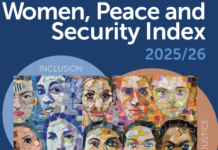The portrayal of a doctor in a documentary about an organization run by a preacher convicted of sexual exploitation as a supporter of the preacher because she wrote reports about the torture suffered by him and his followers during their first stay in police custody in 1999 has caused outrage among human rights activists who vouched for the doctor’s record, Turkish Minute reported.
The documentary “Adnan,” released by 140journos, looks at the organization of Adnan Oktar, a preacher who was convicted in 2022 on numerous charges, including sexual exploitation, and portrays it as a cult-like structure that manipulates and exploits its members, often leading to the destruction of families and lives.
One poignant story told in the documentary series is that of Elvan Koçak, a father struggling to save his daughters from Oktar’s influence. His desperate attempts to save his children underscore the far-reaching and destructive impact of the organization on individuals and families.
However, the documentary takes a controversial turn when it accuses Şebnem Korur Fincancı, the president of the Turkish Medical Association (TTB) and a prominent human rights activist, of helping Oktar avoid legal consequences by creating a false torture report, thus thwarting the investigation. The accusation sparked a social media campaign against Fincancı as many accused her of helping Oktar.
This drew widespread condemnation from various human rights and professional organizations.
Critics argue that the documentary unjustly targets Fincancı, a respected human rights advocate and forensic expert known for her work against torture and mistreatment. They view the attack on her as an attempt to discredit and silence a prominent voice against human rights abuses.
Oktar, whom critics see as the leader of a cult, hosted TV programs surrounded by women wearing lots of makeup and minimal clothing as he preached creationism and conservative values. He gained notoriety for his programs on the online A9 television channel and had regularly been denounced by Turkey’s religious leaders.
Oktar was taken into custody in İstanbul in 2018 as part of a probe by the city’s police financial crimes unit in a major crackdown on his group.
In 2021 he was sentenced to 1,075 years for crimes including sexual assault, sexual abuse of minors, fraud and attempted political and military espionage. A higher court overturned the ruling.
During the retrial in 2022, an İstanbul high criminal court sentenced Oktar to 8,658 years in prison on several charges including sexual abuse and deprivation of liberty. The court also sentenced 10 other suspects to 8,658 years in prison each.
The documentary about Oktar drew parallels with the case of Jeffrey Epstein and portrayed the preacher as a notorious cult leader who exploits his followers.
However, many criticize the documentary for not addressing the responsibility of the ruling Justice and Development Party or any other state official and instead portraying Fincancı as a person with secret ties to the group who helped them evade justice through her reports.
Fincancı has been a vocal critic of human rights abuses and has dedicated her career to documenting and opposing torture.
In response to the backlash, Fincancı has defended her professional integrity and the accuracy of her reports. She has indicated plans to pursue legal action against what she describes as a campaign of misinformation and slander. Fincancı’s supporters argue that the documentary’s allegations are baseless and represent a dangerous precedent for attacking human rights defenders under the guise of journalism.
They contend that the documentary’s narrative not only undermines the credibility of a respected human rights figure but also attempts to invalidate the broader struggle against torture and ill-treatment in Turkey and beyond.
The Human Rights Foundation of Turkey (TİHV) and the Human Rights Association (İHD) have issued joint statements condemning the attack on Fincancı and emphasizing the importance of her work. The statements highlight the critical role of the Istanbul Protocol, an international guideline for the documentation of torture that Fincancı has helped to promote and implement globally. The organizations stress that attempts to discredit her work are tantamount to endorsing impunity for perpetrators of torture.















